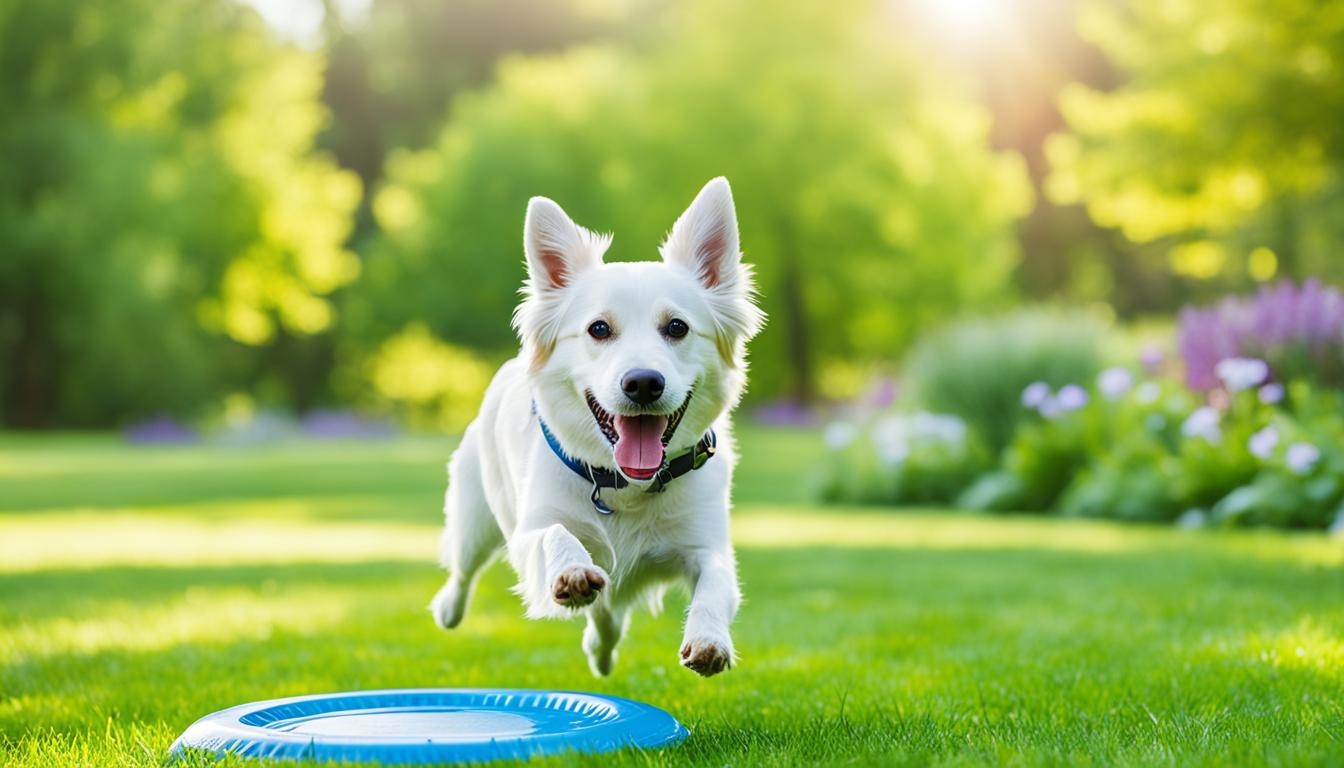Welcome to our comprehensive guide on maintaining a healthy lifestyle for your pets. At [Brand Name], we understand the importance of providing the best care for your furry friends. In this article, we will share valuable tips and advice on pet health and wellness, covering various aspects such as diet, exercise, preventive care, and more. By following these tips, you can ensure that your pets stay happy, healthy, and thriving.
When it comes to pet care, a holistic approach is crucial. Just like humans, pets need a balanced diet, regular exercise, proper hygiene, and preventive measures to maintain their overall well-being. This includes understanding their nutritional needs, managing their weight, ensuring adequate exercise, regular veterinary check-ups, holistic and preventive practices, dental health, and customizing their diet to meet their specific requirements.
With our expert advice and practical tips, you can provide the best possible care for your pets. Let’s dive into the details of each aspect of pet health and wellness, so you can make informed decisions and nurture a long and joyful life for your beloved companions.
Key Takeaways:
- Understanding your pet’s nutritional needs is essential for their overall health and well-being.
- Proper weight management is crucial to prevent obesity-related health issues in pets.
- Adequate exercise helps keep pets physically and mentally stimulated.
- Regular veterinary check-ups and preventive care are essential for early detection and treatment of potential health issues.
- Holistic and preventive practices can enhance your pet’s well-being and complement traditional veterinary care.
Understanding Your Pet’s Nutritional Needs
In order to ensure the health and well-being of our beloved pets, it is crucial to understand their nutritional needs. A balanced diet plays a vital role in supporting their overall health and longevity. By providing the right nutrients in their diet, we can help our furry friends thrive and lead a healthy lifestyle.
When it comes to selecting the appropriate pet food, it is important to consider the nutritional requirements specific to your pet’s species, breed, age, and individual needs. Consult with your veterinarian for personalized advice on the ideal diet for your pet.
Key factors to consider when choosing pet food include:
- The quality of ingredients: Look for pet foods that contain high-quality, natural ingredients that meet the nutritional standards recommended by veterinarians.
- Protein sources: Pets require adequate protein for muscle development, repair, and overall health. Ensure that the pet food you choose has a suitable protein source, such as chicken, beef, fish, or plant-based proteins for vegetarian pets.
- Carbohydrates: While carbohydrates play a role in providing energy, it is important to choose pet foods that contain healthy, easily digestible sources such as whole grains, fruits, and vegetables.
- Essential fatty acids: Omega-3 and omega-6 fatty acids are essential for maintaining healthy skin, coat, and immune function. Look for pet foods that include these beneficial fats.
- Vitamins and minerals: A well-balanced pet diet should contain essential vitamins and minerals to support overall health and well-being. These include vitamins A, C, D, E, B-complex vitamins, calcium, phosphorus, and others.
Remember, it’s important to introduce any dietary changes gradually to avoid digestive upset. Always provide your pets with fresh water and monitor their eating habits and weight to ensure a healthy pet diet.
Managing Your Pet’s Weight for Optimal Health
In order to ensure optimal health for your furry friends, it is crucial to manage their weight effectively. Maintaining a healthy weight is essential for preventing various health issues and promoting overall well-being in pets.
The Impact of Obesity on Pet Health
Obesity can have detrimental effects on the health of your pets. Just like humans, overweight pets are prone to a wide range of health problems, including:
- Diabetes
- Heart disease
- Joint problems
- Respiratory issues
- Decreased lifespan
By understanding the consequences of obesity in pets, we can take proactive measures to prevent weight gain and maintain our pets at a healthy weight.
Caloric Intake and Treat Management
Proper caloric intake plays a crucial role in pet weight management. It is important to accurately calculate the daily calorie requirements of your pets based on their size, age, and activity level. Consult with your veterinarian for personalized guidance on the appropriate amount of food to feed your pet.
Additionally, it is essential to be mindful of the treats and snacks we give to our pets. Treats should be given in moderation and should contribute to their overall daily calorie intake. Opt for healthy pet treats that are low in calories and specifically formulated for weight management.
Healthy Snack Alternatives for Pets
When it comes to pet snacks, there are plenty of healthy alternatives available that can support their overall health without compromising their weight. Consider the following options:
- Carrot sticks: Carrots are low in calories and high in fiber, making them a nutritious snack for pets.
- Apple slices: Apples are a great source of vitamins and antioxidants. Be sure to remove the seeds and core before feeding them to your pet.
- Rice cakes: Plain rice cakes can serve as a satisfying and low-calorie treat for your furry friend.
- Canned pumpkin: Plain, unsweetened canned pumpkin is rich in fiber and can be a beneficial addition to your pet’s diet.
Remember, always introduce new snacks gradually and monitor your pet’s reaction. Every pet is unique, so it’s important to choose snacks that suit their individual dietary needs.

| Treat | Calories per Serving |
|---|---|
| Carrot sticks (1 medium carrot) | 25 |
| Apple slices (1/2 medium apple) | 30 |
| Rice cakes (1 plain rice cake) | 35 |
| Canned pumpkin (1 tablespoon) | 10 |
These snack alternatives, when incorporated into your pet’s diet with appropriate portion control, can provide them with a tasty and healthy reward without jeopardizing their weight management goals.
Ensuring Adequate Exercise for Your Animal Companion
Physical exercise is essential for pets to maintain their overall health and well-being. Just like humans, pets need regular exercise to stay fit, active, and mentally stimulated. Engaging in various types of exercises and activities can not only keep your pet physically active but also strengthen the bond between you and your furry friend.
When it comes to pet exercise, it’s important to consider their specific needs, age, breed, and size. Here are some tips to ensure your animal companion gets adequate exercise:
- Set aside dedicated playtime: Make sure to set aside dedicated playtime for your pet every day. Engage in activities such as fetch, tug-of-war, or hide-and-seek to keep them moving and mentally stimulated.
- Take regular walks or hikes: Going for walks or hikes with your pet is a great way to provide them with physical exercise and mental stimulation. Explore different routes and environments to keep things interesting for both of you.
- Provide interactive toys: Interactive toys, such as puzzle toys or treat-dispensing toys, can encourage physical activity and mental engagement. These toys often require your pet to figure out how to get to the treat, keeping their mind stimulated.
- Consider agility training: If your pet is up for a challenge, consider agility training. This activity involves navigating through an obstacle course, which can provide both physical exercise and mental stimulation.
Bonding with your pet through exercise is not only beneficial for their health but also strengthens the emotional connection between you and your furry friend. Spending quality time engaging in physical activities together can create memorable experiences and enhance the bond you share.
Importance of Routine Veterinary Check-Ups
Regular veterinary check-ups are an essential component of pet veterinary care. These routine visits play a crucial role in maintaining your pet’s overall health and well-being. By scheduling regular check-ups, you can ensure that any underlying issues or potential health risks are detected early on, allowing for timely treatment and intervention.
Annual wellness exams and preventive screenings are particularly important for your pet’s ongoing health monitoring. These comprehensive examinations allow veterinarians to assess your pet’s overall health status, identify any potential health concerns, and provide necessary preventive care.
Annual Wellness Exams and Preventive Screenings
Annual wellness exams are key to keeping track of your pet’s health and identifying any changes or abnormalities. During these exams, your veterinarian will conduct a thorough physical examination, checking your pet’s eyes, ears, teeth, heart, lungs, and other vital organs. They will also evaluate your pet’s weight, body condition, and overall mobility.
Preventive screenings, such as blood tests, fecal exams, and urinalysis, are often performed during these wellness visits. These screenings help detect early signs of disease, such as organ dysfunction or infection, even before symptoms become apparent. Early detection enables prompt intervention and treatment, potentially improving outcomes and preventing the progression of certain conditions.

The Significance of Vaccinations and Parasite Prevention
Vaccinations are essential for protecting your pet from infectious diseases. Your veterinarian will develop a vaccination schedule tailored to your pet’s specific needs and lifestyle. By ensuring that your pet is up to date on vaccinations, you can significantly reduce the risk of contracting and spreading preventable diseases.
Parasite prevention is another critical aspect of routine veterinary care. Fleas, ticks, heartworms, and intestinal parasites can all pose significant health risks to your pet. Your veterinarian will recommend appropriate preventive measures, such as topical treatments, oral medications, or collars, to protect your pet against these parasites. Regular screenings and preventive treatments can help keep your pet safe and healthy.
Pet Health and Wellness Tips: Holistic and Preventive Practices
In this section, we will explore holistic and preventive practices to ensure the health and well-being of your beloved pets. By integrating holistic approaches with conventional veterinary care, you can provide comprehensive and balanced care for your furry companions. We will delve into the benefits of natural pet remedies and how they can complement traditional treatments. Additionally, we will provide practical tips on incorporating holistic wellness practices into your pet’s routine to promote their overall health.
Natural Pet Remedies and Their Benefits
Natural pet remedies offer a holistic approach to pet health by harnessing the power of natural ingredients to support their well-being. These remedies can be used to alleviate common ailments, boost immune function, and promote optimal health for your pets. Some benefits of natural pet remedies include:
- Reduced risk of adverse reactions: Unlike synthetic medications, natural remedies are often free from harmful side effects, making them a safer choice for your pets.
- Support for the body’s natural healing processes: Natural remedies work in harmony with your pet’s body, helping to strengthen their immune system and promote natural healing.
- Potential to address underlying causes: Natural remedies focus on addressing the root cause of the issue rather than just alleviating symptoms, providing long-term relief and wellness.
- Sustainability and eco-friendliness: Many natural remedies are derived from sustainable sources, promoting environmental sustainability and minimizing the carbon footprint.
Integrating Holistic Approaches with Conventional Veterinary Care
Integrating holistic approaches with conventional veterinary care allows you to take a comprehensive and well-rounded approach to your pet’s health. By combining the best of both worlds, you can provide your pets with optimal care and support their overall well-being.
Here are some tips for integrating holistic approaches with conventional veterinary care:
- Communication with your veterinarian: Discuss your interest in holistic approaches with your veterinarian to ensure they can provide guidance and support.
- Collaborative care: Work with your veterinarian to develop a holistic treatment plan that complements conventional treatments, ensuring the best possible outcome for your pets.
- Use natural remedies as complementary therapies: Incorporate natural remedies alongside conventional treatments to enhance their effectiveness and promote holistic healing.
- Promote preventive care: Implement preventive practices such as regular exercise, balanced nutrition, and stress reduction techniques to prevent the onset of health issues and promote long-term wellness.
- Monitor your pet’s response: Observe how your pet responds to different treatments and make necessary adjustments to ensure their holistic care plan aligns with their specific needs.
By embracing holistic and preventive practices, you can provide your pets with the highest level of care, support their overall well-being, and enhance the bond you share.
Maintaining Pet Dental Health and Hygiene
Dental health is an important aspect of pet care that often gets overlooked. Just like humans, pets can also experience dental issues that can impact their overall health and well-being. To ensure your pet’s dental health and hygiene, it’s essential to establish a regular oral care routine and schedule professional dental cleanings when necessary.
One of the primary practices for maintaining pet dental health is brushing your pet’s teeth regularly. While it may seem challenging at first, with patience and persistence, you can train your pet to become comfortable with this routine. Start by introducing your pet to the toothbrush and toothpaste specially designed for pet use. Use gentle, circular motions to brush their teeth and focus on both the outer and inner surfaces. It’s important to use toothpaste formulated specifically for pets as human toothpaste can be harmful to them.
In addition to brushing, providing your pet with dental chews and toys can also help promote good oral hygiene. Chewing on these items can help remove plaque buildup and prevent dental issues. Make sure to choose products that are safe and appropriate for your pet’s size and chewing habits.
While regular brushing and chewing can contribute to dental health, professional dental cleanings are also crucial. During these cleanings, a veterinarian will conduct a thorough examination of your pet’s teeth and gums, remove tartar and plaque buildup, and address any potential dental issues. These cleanings are typically performed under anesthesia to ensure the comfort and safety of your pet.
Regular dental cleanings for pets are recommended at least once a year or as advised by your veterinarian. However, some pets may require more frequent cleanings based on their individual dental health needs. Remember that prevention is key when it comes to dental care, so scheduling routine dental cleanings can help identify and address any dental issues before they become more severe.
“Proper dental health and hygiene are essential for the overall well-being of your pet.”
By prioritizing pet dental care and oral hygiene, you can help ensure that your furry friend maintains good dental health and enjoys a happy, healthy life. Remember to consult with your veterinarian for specific recommendations and guidance tailored to your pet’s individual needs.
Optimal Health through Pet Diet Customization
Every pet has unique dietary needs, and customizing their diet can contribute to their optimal health. It is essential to understand that each pet has specific requirements when it comes to their nutrition. By tailoring their diet to their individual needs, we can provide them with personalized pet nutrition that supports their overall well-being.
Special dietary needs for pets, such as food allergies and sensitivities, require careful consideration. Identifying and addressing these dietary restrictions is crucial to ensure that pets receive the nutrients they need while avoiding any potential allergens or irritants. By providing a customized pet diet, we can minimize the risk of adverse reactions and support their long-term health.

When it comes to managing food allergies, it is important to work closely with a veterinarian or veterinary nutritionist. They can conduct tests or recommend an elimination diet to identify specific allergens and create a tailored diet plan. This personalized approach reduces the risk of adverse reactions and improves the pet’s overall quality of life.
Similarly, pets with food sensitivities can benefit from a customized diet that eliminates triggering ingredients. A careful analysis of the pet’s symptoms and dietary history can help identify these sensitivities. By eliminating specific ingredients from their diet, we can alleviate their discomfort and support their digestive health.
The importance of pet diet customization cannot be overstated. By understanding and accommodating the special dietary needs of pets, we can optimize their health, prevent nutritional deficiencies, and enhance their overall quality of life.
The Psychological and Physical Benefits of Pet Play and Companionship
Pets provide not only physical but also psychological benefits to their owners. The bond between humans and animals has been shown to have a positive impact on mental well-being and overall quality of life. In this section, we’ll explore the importance of pet play and companionship for your pet’s well-being. We’ll delve into the mental stimulation provided by interactive play and the role of socialization in promoting your pet’s overall wellness.
Mental Stimulation Through Interactive Play
Interactive pet toys play a vital role in providing mental stimulation for your pets. These toys engage their cognitive abilities and prevent boredom. By encouraging your pet to play with interactive toys, you are helping them stay mentally active and alert. These toys can include puzzle feeders, treat-dispensing toys, and interactive games that require problem-solving skills. Not only does interactive play stimulate their minds, but it also helps to fulfill their natural instincts and provides a sense of accomplishment.
Additionally, interactive playtime allows for a stronger bond to develop between you and your pet. Through play, you can establish trust, reinforce positive behavior, and create memorable moments of fun and joy. This form of mental stimulation is essential for pets of all ages and can contribute to their overall well-being and happiness.
The Role of Socialization in Pet Wellness
Pet socialization is crucial for their emotional and behavioral development. It provides an opportunity for your pet to learn how to interact with other animals and humans, helping them feel more comfortable and confident in various social situations. Exposure to different environments, people, and animals from an early age can prevent fear and anxiety-related issues in the future.
Regular socialization activities, such as visits to dog parks, playdates with other pets, and attending training classes, can help improve your pet’s social skills and reduce the risk of aggression or fear-based reactions. Socialization not only contributes to their overall well-being but also enhances their ability to adapt to new situations and environments.
For certain pets, such as emotional support animals, socialization plays an even more critical role. These animals are specifically trained to provide comfort and support to individuals with mental health conditions. Proper socialization allows them to be more effective in fulfilling their role and providing the necessary emotional support.
Remember, when introducing your pet to new social situations, always ensure their safety and monitor their behavior. Gradual exposure and positive reinforcement techniques can help create positive associations and make the socialization process a rewarding experience for both you and your pet.

Conclusion
In conclusion, embracing a healthy lifestyle for both pets and owners is of utmost importance. By prioritizing the well-being of our furry friends, we can ensure their happiness and longevity. Additionally, this commitment to pet health has a positive impact on our own wellness as well.
By implementing healthy habits for pets and owners alike, we can create a strong bond through shared well-being. Regular exercise, a balanced diet, routine veterinary check-ups, and mental stimulation through playtime are all essential components of a pet health lifestyle.
Not only do these practices benefit our pets, but they also contribute to our own well-being. By actively participating in our pets’ care, we experience the joy and fulfillment that comes with bonding with our beloved animal companions.
So let us commit to creating a healthy lifestyle for our pets and ourselves. Together, we can nurture a harmonious relationship built on love, care, and the pursuit of optimal health. After all, the health and happiness of our pets is truly rewarding.
FAQ
What are some tips for maintaining a healthy pet lifestyle?
Some tips for maintaining a healthy pet lifestyle include providing proper daily exercise, ensuring a balanced diet, scheduling regular veterinary check-ups, and practicing good hygiene and dental care.
How do I understand my pet’s nutritional needs?
Understanding your pet’s nutritional needs involves considering their age, breed, size, and any specific dietary requirements. Consulting with a veterinarian can help determine the optimal diet for your pet.
How can I manage my pet’s weight for optimal health?
You can manage your pet’s weight for optimal health by monitoring their caloric intake, avoiding overfeeding, providing regular exercise, and choosing healthy snack alternatives to high-calorie treats.
How important is exercise for my pet’s overall health?
Exercise is crucial for your pet’s overall health as it helps maintain a healthy weight, improves cardiovascular health, strengthens muscles and joints, provides mental stimulation, and enhances the bond between you and your pet.
Why are routine veterinary check-ups important for my pet?
Routine veterinary check-ups are important for your pet because they help detect any underlying health issues early on, ensure vaccinations are up to date, monitor overall health, and provide preventive care to keep your pet healthy.
What are some holistic and preventive practices for pet health and wellness?
Some holistic and preventive practices for pet health and wellness include using natural pet remedies, integrating holistic approaches with conventional veterinary care, providing proper nutrition and exercise, and prioritizing mental stimulation and socialization.
How can I maintain my pet’s dental health and hygiene?
To maintain your pet’s dental health and hygiene, you should brush their teeth regularly, provide dental-friendly toys and treats, and schedule regular professional dental cleanings with your veterinarian.
Should I customize my pet’s diet?
Customizing your pet’s diet can be beneficial, especially if they have special dietary needs such as food allergies or sensitivities. Consult with a veterinarian to determine the most appropriate diet for your pet.
How does pet play and companionship benefit their overall wellness?
Pet play and companionship provide mental stimulation, reduce stress, promote physical activity, and strengthen the bond between you and your pet. Socialization with other pets and humans is also essential for their overall well-being.
Why is embracing a healthy lifestyle important for both pets and owners?
Embracing a healthy lifestyle is important for both pets and owners as it promotes longevity, improves quality of life, reduces the risk of chronic diseases, and strengthens the bond between pets and their owners through shared well-being.
Source Links
- https://www.centralvalleyanimalhospital.com/site/blog/2022/02/04/6-tips-for-keeping-your-dog-healthy
- https://www.petmd.com/dog/general-health/tips-for-a-healthy-dog
- https://www.cdc.gov/healthypets/keeping-pets-and-people-healthy/how.html

